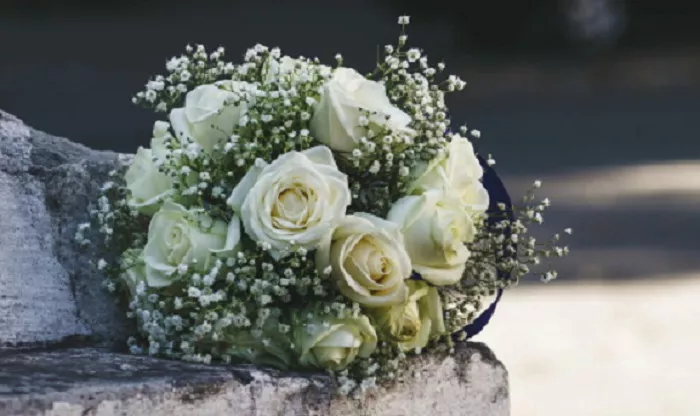When it comes to wedding bouquets, the choice of flowers is often a romantic and personal decision. However, not all flowers are suitable for this special occasion. Some may carry negative cultural connotations, have short vase lives, or even cause allergic reactions. In this article, we will explore the flowers that should be avoided in wedding bouquets, providing practical advice for creating the perfect floral arrangement.
Cultural Considerations: Flowers with Unlucky Symbolism
Flowers with Negative Symbolism
Certain flowers have cultural meanings that are not ideal for a wedding. For instance, chrysanthemums are often associated with death and are commonly used in funerals in many Western cultures. While they may be beautiful, their symbolism can overshadow the joy of the wedding day. Similarly, poppies are linked to sleep and oblivion, which is not the message you want to convey on your wedding day. It’s essential to research the cultural significance of flowers before including them in your bouquet.
Regional Variations in Symbolism
The symbolism of flowers can vary widely across different regions. In some cultures, red flowers symbolize love and passion, while in others, they may represent danger or bad luck. For example, in Chinese culture, white flowers are often reserved for funerals, making them unsuitable for weddings. Understanding these regional differences can help you avoid any unintentional cultural faux pas.
Practical Concerns: Flowers with Short Vase Lives
Flowers That Wilt Quickly
Wedding bouquets need to look fresh and beautiful throughout the entire event. Flowers with short vase lives, such as sunflowers or daisies, may wilt quickly, especially if the ceremony is held outdoors or in a warm environment. These flowers can lose their luster within hours, which can be disappointing for both the bride and the guests.
Choosing Long-Lasting Alternatives
Opting for flowers with longer vase lives can ensure that your bouquet remains fresh and vibrant. Roses, lilies, and orchids are excellent choices as they can last for several days. Additionally, flowers like carnations and alstroemeria are not only long-lasting but also come in a variety of colors, making them versatile options for wedding bouquets.
Allergies and Sensitivities: Flowers to Avoid for Allergy Prone Guests
Common Allergenic Flowers
If you or your guests have allergies, certain flowers should be avoided. Chrysanthemums, daisies, and marigolds are common allergens that can cause sneezing, itching, and other allergic reactions. Including these flowers in your bouquet could lead to discomfort for your guests, especially during the ceremony and reception.
Hypoallergenic Flower Options
Fortunately, there are many hypoallergenic flowers that can be used in wedding bouquets. Roses, snapdragons, and tulips are generally safe choices for those with allergies. Additionally, flowers like orchids and lilies are not only beautiful but also less likely to cause allergic reactions. Consulting with a florist who specializes in hypoallergenic arrangements can help you create a bouquet that is both stunning and safe for everyone.
Aesthetic Considerations: Flowers That Don’t Blend Well
Flowers with Strong Scents
While some flowers are chosen for their fragrance, others can have overpowering scents that may not be suitable for a wedding bouquet. Flowers like gardenias and tuberose have strong, heavy fragrances that can be overwhelming in a confined space like a church or a reception hall. These intense scents can also clash with other floral arrangements or even the bride’s perfume.
Choosing Harmonious Fragrances
When selecting flowers for your bouquet, it’s important to consider the overall fragrance profile. Lightly scented flowers like freesias, lilacs, and roses can add a pleasant aroma without being overpowering. Additionally, mixing flowers with complementary scents can create a balanced and delightful fragrance that enhances the atmosphere of your wedding.
Seasonal and Availability Issues: Flowers That May Not Be in Season
Out-of-Season Flowers
Choosing flowers that are not in season can lead to higher costs and lower quality blooms. Flowers like peonies, which are typically in season during spring, may be difficult to source in other months. Attempting to use out-of-season flowers can result in wilted or damaged blooms, as they may have been transported long distances or stored improperly.
Seasonal Flower Alternatives
Opting for in-season flowers can not only save you money but also ensure that your bouquet looks its best. For example, during the summer months, you can choose from a variety of vibrant flowers like dahlias, zinnias, and lavender. In the winter, flowers like amaryllis, camellias, and hellebores can add a touch of elegance to your bouquet. Working with a local florist can help you find the best seasonal options for your wedding.
Conclusion
Creating the perfect wedding bouquet involves careful consideration of cultural symbolism, practical concerns, and aesthetic preferences. By avoiding flowers with negative connotations, short vase lives, or potential allergy issues, you can ensure that your bouquet is both beautiful and appropriate for your special day. With thoughtful planning and the guidance of a skilled florist, your wedding bouquet will be a stunning centerpiece that enhances the joy and celebration of your wedding.


